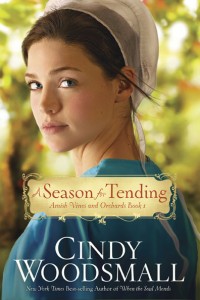
A note from the author ~ Discussion questions are for readers, usually book clubs, who’ve read the book.
If you haven’t read the book, the discussion questions below may contain plot spoilers.
- Rhoda had accusations and rumors murmured against her throughout the community. In chapter one, the author explains of Rhoda: “No matter how many people lived with her or how deeply loyal they were, she stood on an island by herself, forbidden to acknowledge the largest part of who she was.” Have you ever hidden a crucial part of yourself from others, believing that they wouldn’t accept you if this portion of you were revealed? Should your family be a place where you can let your guard down and be your true self? Or should they be the ones aiming to mold you to fit in better with society? Do you feel we wear a “mask” even around those closest to us because we fear rejection?
- Jacob refuses to help with construction for his dad and the Amish mission outreach. What do you think happened in Jacob’s past that he isn’t willing to discuss or reveal? Do you have any predictions about how Sandra and Casey might be involved? Do you think he should confront his past instead of keeping it hidden? When is it okay to share the load of one’s past and when should the burden remain on the person who committed the wrong?
- Rhoda is very compassionate to Leah after finding her asleep in her garden. Rhoda understands that, “Pretty is what God does in the hearts and minds of people who are a mess—whether outwardly or inwardly or both.” This attitude causes her to be more soft and kind than Leah’s brother, Samuel. Which approach do you think Leah needed more: Samuel’s firm reprimand or Rhoda’s kindness and acceptance? Which do you show to others? How do each of these two different approaches relate to the various ways that God disciplines us?
- In chapter 12, Rhoda won’t talk about her visitor with her Daed, and her Daed won’t talk about the possibility of her brothers building a home on the land her garden is occupying. Do you think it would have helped each of them process the situation to talk it out? How can we determine when we should keep our concerns private or when seeking wise counsel with others may be helpful?
- Leah’s family thinks she is lazy because she doesn’t like to do chores. She resents the Amish lifestyle and how much work she has to do every day. But Rhoda thinks that Leah simply needs to find something she’s good at and then she’ll begin to enjoy the work. Have you ever discovered a new approach or attitude toward a particularly tedious job that made it more enjoyable and rewarding?
- When Samuel discovers that Eli hasn’t taken proper care of his share of the apple trees, he comes up with a possible plan that involves Rhoda. If Leah had never attended the party and fallen asleep in Rhoda’s garden, Samuel would never have met Rhoda. What circumstances in our lives do we tend to complain about, even though we know they might end up being beneficial to us? Leah was being disobedient to the rules of her community and her parents, but is it possible that this might have been part of God’s plan? Does He plan the wrong, or reshape it and use it for a better purpose?
- In chapter 13, Leah is consumed with worry that she may be pregnant. If she is, the whole community will know what she’s done. Everyone has mistakes from their past that they regret. What effects do regret and guilt have on people emotionally, physically, and spiritually? What are the best ways to handle regret and keep it from running your life?
- Catherine is very upset when she realizes Arlan is going to an Englischer church, but Samuel seems much more accepting. Why do you think it bothers Catherine so much more than Samuel? What other emotions, opinions, or experiences could be behind the issue?
- Samuel makes a business proposition with Rhoda in Chapters 14 and 15. Rhoda and Samuel are very different people, both in personality and exercising their faith toward others. How might they overcome their differences and work together peaceably, even though they irritate each other? Are opposite personalities beneficial or detrimental in a business relationship? What about in a personal relationship?
- Catherine relies on Samuel a great deal to calm her when she’s upset and to take care of any unpleasant situations in her life. Although this causes tension between Samuel and her, do you think it could be acceptable in other relationships? What are some healthy ways to rely on others and request their help and how much dependency is too much?
- At the end of the novel, after much deliberation, everyone agrees on how to address the issues with the apple orchard. What unique challenges do you think an Amish family or community would encounter in this new circumstance? What types of problems do you anticipate Rhoda will face because of her unusual behaviors and opinions? Will she be accepted or ostracized all over again?
 - Facebook
- Facebook







